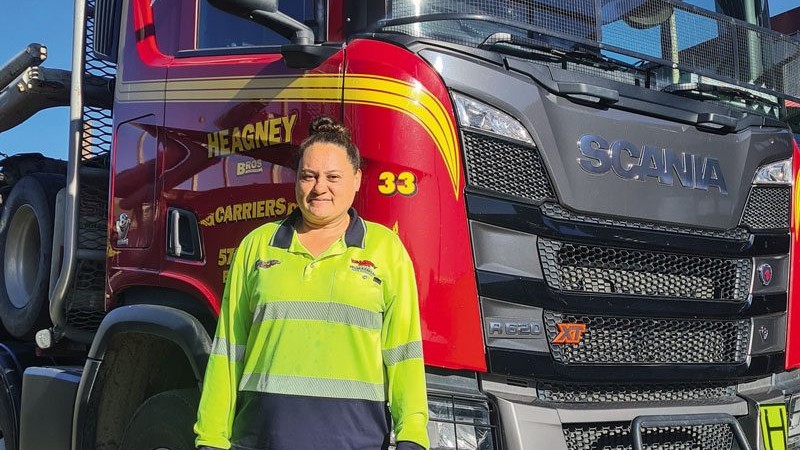Formal recognition of skills important for transport sector

Formally acknowledging the work of equipment operators via a qualification is an important part of the transport sector, according to transport firm Heagney Bros.
The South Island’s Heagney Bros has been providing transport solutions to the Marlborough region and beyond since 1983. The company operates out of a purpose-built facility at Riverlands Industrial Estate, Blenheim and has grown from the modest beginnings of owning one truck to the current modern fleet of more than 50 vehicles.
Its fleet consists of log and stock trucks, bulk and general freight trucks, a fertiliser spreader, firewood truck, hi-ab truck and loaders. Brands include Scania, Western Star, Mack, Volvo and Kenworth.
The company currently employs approximately 40 full time staff and takes on additional drivers for seasonal work. Heagney Bros has been running a truck driver apprenticeship programme for the last three years.
“We wanted a formal qualification to recognise the extra training our employees were undertaking,” says chief executive Mickayla Kerr.
“We got involved with MITO and have had our staff complete training in log transport, heavy automotive and business programmes.
Mickayla says training programmes through MITO provide a formal recognition of what staff are learning and what they do on a day-to-day basis.
“Driving a log truck is a lot of responsibility and takes a high level of skill,” she says.
“Having that formalised learning is important and it recognises the difficult job it actually is.”
Mickayla says working with MITO has been a good experience for the company.
“We are really lucky. MITO is great in terms of giving us any support we need with any of the cadets, including providing tablets for their learning if they don’t have a computer at home.
“And MITO is really helpful with the ones that need a little bit of extra support to get through the qualifications.
She says training is super important for the transport industry.
“It’s important that as an industry to have qualifications that recognise and formalise training procedures to ensure that people learn what they need to do their job.





